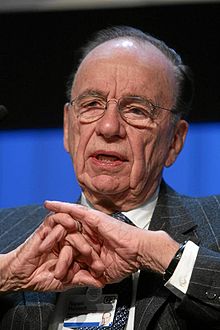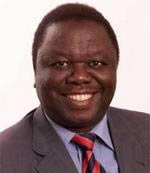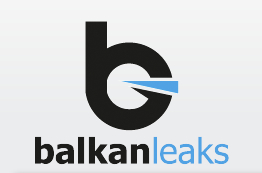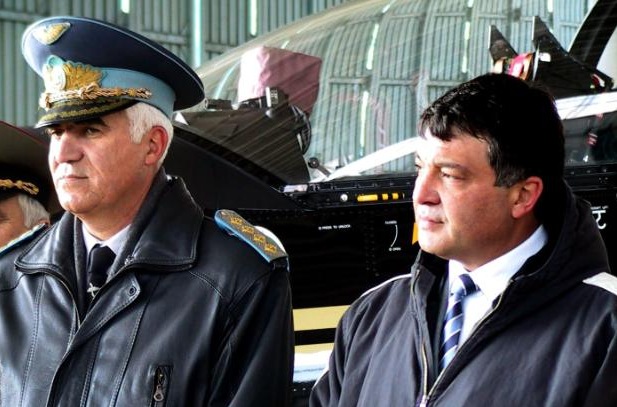Authored by Slackbastard
Introduction
On November 28, 2010 WikiLeaks—in conjunction with other major media organisations—began publishing classified United States diplomatic cables, detailing correspondence between the US State Department and its diplomatic missions around the world.
The publication of these cables has had an enormous impact upon world affairs. In its 2011 Annual Report, the human rights organisation ‘Amnesty International’ nominated the publication as a major catalyst in a series of uprisings against repressive regimes in the Middle East and North Africa—the so-called ‘Arab Spring’.
Not everyone has welcomed the revelations contained in the WikiLeaks publications quite so warmly, however, and governments around the world have begun to implement measures designed to stifle such activity.
In Australia, these measures are being implemented by way of a series of amendments to laws governing the operations of the state’s intelligence and security apparatus.

This is a "WikiLeaks News Update", a daily news update of stories that are obviously related to WikiLeaks and also freedom of information, transparency, cybersecurity, and freedom of expression. All the times are GMT.
New cable(s) were released today.
08:40 PM Haiti Liberté journalist Dan Coughlin weighs in on the impact of WikiLeaks revelations in the country.
The release of secret U.S. Embassy cables has provoked a maelstrom in Haitian politics, threatening the approval of a prime minister-designate, damaging the career of a leading right-wing politician, and throwing Haiti’s tiny and ultra-rich elite into a paroxysm of public mea culpas., he writes.
Bernard Gousse, President Martelly’s choice for prime minister, responsible for persecuting Aristide supporters during his time as a Justice Minister is now facing decresed parliamentary support and Haitian businessman Fritz Mevs addressed a letter for apology to Senator LaTortue for statements of his contained in the diplomatic cables.
Haiti's real enemy and the true source of insecurity [was] a small nexus of drug-dealers and political insiders that control a network of dirty cops and gangs that not only were responsible for committing the kidnappings and murders, but were also frustrating the efforts of well-meaning government officials and the international community to confront them., he told U.S. Ambassador Foley in 2005.
The letter sees him praise individuals he had described as narco-traffickers and kidnappers in 2005, Dan Coughlin points out.
 The Wall Street Journal - a News Corporation outlet - is again engaging in aggressive damage control for the Murdoch empire by attacking Wikileaks. WL Central addresses the mendacity.
The Wall Street Journal - a News Corporation outlet - is again engaging in aggressive damage control for the Murdoch empire by attacking Wikileaks. WL Central addresses the mendacity.
It appears that the Wall Street Journal - which publishes from News Corp's Celanese Building headquarters in New York city - is suing for the title of "Murdoch's Bulldog." Thinly veiled and deceptive attempts to control the message on the escalating News of the World scandal have been issuing from the once-respected news outlet. And the tactic seems to be diversionary. The second article in two days to defend News Corp by attacking Wikileaks was published today, penned by Bret Stephens.
Trevor Timm has already written here at WL Central about yesterday's clumsy WSJ editorial, which alleged hypocrisy at the Guardian, in that it criticized News of the World while publishing material from Wikileaks. Today's article belaboured the same spurious argument even further, as the air of desperation at News Corp intensified in advance of the Murdoch hearing today. Keen to deny his motives preemptively, Stephens notes:
It's probably inevitable that this column will be read in some quarters as shilling for Rupert Murdoch. Not at all: I have nothing but contempt for the hack journalism practiced by some of the Murdoch titles.
 Morgan Tzvangirai will not be prosecuted, a Zimbabwean panel has determined, in connection with comments he made to US diplomats, revealed in cables published by the Guardian.
Morgan Tzvangirai will not be prosecuted, a Zimbabwean panel has determined, in connection with comments he made to US diplomats, revealed in cables published by the Guardian.
The Financial Gazette, a Zimbabwean English-language news weekly, reports:
A PANEL set up early this year to probe alleged treason by Prime Minister Morgan Tsvangirai and leading ZANU-PF critics, has recommended that there are no legal grounds to prosecute individuals on the basis of accounts contained in WikiLeaks files, The Financial Gazette has established. The panel, set up by Attorney-General (AG), Johannes Tomana, was composed of some of the country's top legal minds, in terms of Section 76 of the Constitution, to sift through the WikiLeaks cables for possible breach of the country's laws.
In January, the potential charges against Tzvangirai were seized upon in a Guardian opinion piece by GOP public relations consultant James Richardson, who proceeded to argue that any harm that might come to Morgan Tzvangirai would be attributable to Wikileaks as "collateral damage," since, he argued, Wikileaks had failed to redact information that might incriminate the Zimbabwean PM.
Late last night, the Wall Street Journal published a flailing, desperate editorial, attempting to tamp down the hacking scandal that has engulfed its owner Rupert Murdoch for the past two weeks. In a classic case of blame deflection, the paper took shots at several news organizations on both sides of the Atlantic that are not owned by News Corporation. But lost in the mire of attempted score settling and self-pity is the paper’s incredible stance on WikiLeaks and the First Amendment, which reeks of hypocrisy, and should not be left without a response.
The editorial, of course, does not dispute any of the facts in the hacking scandal investigation, which has been spearheaded by The Guardian and its intrepid reporter, Nick Davies. Instead, the Journal questions what’s driving The Guardian and its ilk, and then declares anything The Guardian has to say about journalistic ethics is null and void because it published, or partnered with others who published, documents leaked to WikiLeaks.
We also trust that readers can see through the commercial and ideological motives of our competitor-critics. The Schadenfreude is so thick you can't cut it with a chainsaw. Especially redolent are lectures about journalistic standards from publications that give Julian Assange and WikiLeaks their moral imprimatur.
This argument would also, of course, discount other papers’ comments on “journalistic standards,” including the Washington Post and the New York Times.
 A new article by the Guardian's James Ball fleshes out David Leigh's allegation that Wikileaks is to blame for the arrest of Bradley Manning.
A new article by the Guardian's James Ball fleshes out David Leigh's allegation that Wikileaks is to blame for the arrest of Bradley Manning.
Last week's release of the unredacted Lamo-Manning chat logs contained more information on the means by which Bradley Manning is alleged to have leaked information to Wikileaks. For a year now, Julian Assange has insisted that he can neither confirm nor deny whether Bradley Manning is the source for the leaks, since - as a matter of policy - the identity of the source is not known to Wikileaks. Wikileaks protects its sources by keeping them anonymous through cryptography and a secure submission system. Even if pressured to reveal their sources by court order - so goes the reasoning - Wikileaks will be unable to do so.
The original redacted chat logs contained no information which contradicted this, but they did contain various passages which appeared to make the story less likely. In particular, Manning is said in the logs to have claimed to have "developed a relationship" with Assange. The unredacted logs, however, give a more complete picture, and appear to confirm that Assange was speaking truthfully. If they are genuine - which is not assured - the chatlogs relate how Assange, in what appear to have been anonymous communications, insisted on knowing as little as possible about Manning.
(02:56:46 PM) bradass87: he knows very little about me
(02:56:54 PM) bradass87: he takes source protection uber-seriously
(02:57:01 PM) bradass87: “lie to me” he says
(02:57:06 PM) info@adrianlamo.com: Really. Interesting.
 Atanas Tchobanov is the spokesman for balkanleaks.eu and co-editor of Bivol.bg as well as a regular writer on WL Central.
Atanas Tchobanov is the spokesman for balkanleaks.eu and co-editor of Bivol.bg as well as a regular writer on WL Central.
Balkanleaks.eu is a whistleblowing Web site modeled on WikiLeaks, and formed to "promote transparency and fight the nexus of organized crime and political corruption in the Balkan states." The site solicits "confidential documents related to political, criminal or financial topics, by offering a manner of collection that is secure and anonymous." Bivol.bg is a Web site devoted to investigative journalism.
In a climate where only three years ago, the editor in chief of a Bulgarian online news provider was severely beaten following several attacks on journalists the same year, both balkanleaks.eu and Bivol.bg have been instrumental in exposing corruption and the abuse of power by organized crime and politicians. You can read some of Bivol's coverage here at WL Central and also here in Bulgarian and Macedonian.
 A whirlwind of change in the way people communicate is sweeping the world. The spread of social media, blogs and online alternative media is rapidly changing how people are informed about current events. More are turning away from newspapers and TV, which have over the last few decades become monopolized by large corporations. Along with the spread of the Internet, WikiLeaks and their release of secret government documents has changed the landscape of the media. As Greg Mitchell's recent book title states, we are now in The Age of WikiLeaks.
A whirlwind of change in the way people communicate is sweeping the world. The spread of social media, blogs and online alternative media is rapidly changing how people are informed about current events. More are turning away from newspapers and TV, which have over the last few decades become monopolized by large corporations. Along with the spread of the Internet, WikiLeaks and their release of secret government documents has changed the landscape of the media. As Greg Mitchell's recent book title states, we are now in The Age of WikiLeaks.
There is much controversy over the future of journalism. The discourse surrounding WikiLeaks in its relation to traditional media has become the eye of the storm. Both the New York Times and The Guardian have come out strongly critical of WikiLeaks and Julian Assange. Bill Keller, executive editor of the New York Times has refused to refer to Assange as a journalist. In an interview on PBS, Keller described Assange as an activist with an agenda to promote, carrying an ideology of transparency, claiming that his aim is to embarrass the US government. Recently, Keller's view on this topic has shifted a bit. He came close to admitting WikiLeaks is a journalistic entity. Yet, he distanced himself from the non-profit whistle-blower site, saying "it still wasn't 'my kind of news organization,' and that if Assange was acting as a journalist, 'I don't regard him as a kindred spirit - he's not the kind of journalist I am'" (as cited in Ingram, 2011).

This is a "WikiLeaks News Update," constantly updated throughout each day. The blog tracks stories that are obviously related to WikiLeaks but also follows stories related to freedom of information, transparency, cybersecurity, and freedom of expression. All the times are GMT.
02:35 PM Wikileaks classified as an "extremist website" by the NLA (National Library of Australia). The classification can be seen here, as printed in The Most Dangerous Man In The World, a biography of Julian Assange, authored by Andrew Fowler. Another book on Wikileaks, Daniel Domscheit-Berg’s, can also be found under the ‘extremist’ category in the Library of Congress catalogue. Only a second book shares this category in the LoC catalogue : ‘U.S. strategy for countering jihadist Web sites…’
Questions remain as to why this classification was applied to certain books regarding the whistleblowing organization.
A few Wikileaks supporters who brought this to my attention are joining forces to enquire about and, if considered necessary, to protest against the ‘extremist’ label.
To contact the NLA on this subject through an online form click here. (edit: fixed link) Their telephone number is 02 6262 1458 (international code for Australia +61)
09:15 AM Revolution Truth has now officially released its first Wikileaks short film(!).

Bulgaria's State Agency for National Security (DANS) is probing within its authority revelations of the whistle-blowing site WikiLeaks that former Chief of General Staff, Nikola Kolev, has provided valuable information to the US Embassy in the beginning of 2003.
The information was reported by Prime Minister, Boyko Borisov, during parliamentary control Friday as a response to a question coming from the Member of the Parliament from the far-right, nationalist Ataka party, Pavel Shopov.
Borisov explained DANS does not have investigative functions, but if there is evidence confirming the Wikileaks report, this evidence would be turned to the Prosecutor's Office.
The cable in question was released on June 15 by WikiLeaks and provided to the project for investigative journalism www.bivol.bg.
Kolev, who is currently Chief of Staff of President, Georgi Parvanov, and the Presidential Office declined any comments at the time.
MP Shopov replied he was satisfied by Borisov's answer because details were not as important as the fact the case is being investigated.
Meanwhile, Bivol.bg commented they were still not able to find out the exact meaning of SIMO, which in another cable, has allegedly confirmed that Borisov was involved in major traffic in methamphetamines.
 WIRED's publication of the full Lamo-Manning chat logs brings a year-long controversy to a close. But questions remain over WIRED's reticence.
WIRED's publication of the full Lamo-Manning chat logs brings a year-long controversy to a close. But questions remain over WIRED's reticence.
1. The History of the Lamo-Manning Chat Logs
2. The Unredacted Chat Logs.
3. WL Central's Annotated Chat Log
The History of the Lamo-Manning Chat Logs
On June 10, 2010, Kevin Poulsen and Kim Zetter at WIRED Magazine published the abridged chat logs - supposedly between Adrian Lamo and Bradley Manning. The logs gave considerable insight into the person accused of leaking to Wikileaks, and to his possible motivations.
However, many questions were raised over the veracity of the logs, the reliability of their source, Adrian Lamo, and his relationship to Kevin Poulsen. Poulsen and Zetter's introduction to the logs stated that redactions had been made to those parts of the logs that "discuss deeply personal information about Manning or that reveal apparently sensitive military information," but shortly after the release, other portions of the logs which fell into neither category appeared in a Washington Post article, and on BoingBoing. These extracts raised the question as to what purposes WIRED had performed the redactions.
We've learned a few important things from the full transcripts of Bradley Manning's online chats with Adrian Lamo. Glenn Greenwald has already focussed on how Wired magazine's decision to with-hold the full transcripts has damaged the reputations of Manning, Assange and WikiLeaks. But it's worth examining in more detail exactly how Wired's subterfuge has affected Julian Assange and WikiLeaks in particular.
Firstly, and most importantly, it's now clear that Julian Assange did NOT know if Bradley Manning was the source who leaked the US cables to WikiLeaks. Manning tells Lamo that Assange “knows little about me” and “he takes source-protections uber-seriously.” Furthermore, he says, Assange "won’t work with you if you reveal too much about yourself.” Assange even instructs Manning to lie about his identity!
This blows apart the US government's protracted efforts to suggest that Assange actively enticed Manning to hand over the cables, and thereby charge the Australian with criminal activity. In fact, it was only through his own protracted sleuth work that Manning even knew who HE was talking to: "it took me four months to confirm that the person i was communicating [with] was in fact assange".
Why would Wired with-hold this critically important information, unless they were actively co-operating with US agents trying to fabricate charges against Assange? Given that Lamo had notified authorities of Manning's alleged actions while still continuing to chat with him, it's logical to assume the Feds would have wanted to censor any published details. Wired appears to have willingly complied.
RevolutionTruth
Primary Contact:
Tangerine Bolen, Executive Director
Phone: 1-503-887-0773
Email: tangerine.bolen@revolutiontruth.org
Local Contact Info:
FOR IMMEDIATE RELEASE
Revolution Truth releases Wikileaks film
14 July 2011 - On the day that Julian Assange begins his appeal against extradition to Sweden, citizen-driven media project Revolution Truth released its first short films, centered around an open letter to the US Government in support of Wikileaks. These shorts, in a project endorsed by Michael Moore, have been produced with the contributions of over 300 individuals from around the world. A major redesign of the RevolutionTruth website, also unveiled today, includes the launch of two new campaigns: one in support of accused whistleblower Bradley Manning and another encouraging solidarity with emerging democratic movements in the Middle East and beyond.
RevolutionTruth is a grassroots, wholly volunteer-led endeavor that conducts campaigns by pairing open letters to influential figures or institutions with short films made up of messages from the public. The first RevolutionTruth campaign began in December 2010 when organization founder Tangerine Bolen decided to stand up to the Obama administration's alarming handling of WikiLeaks and Julian Assange. The open letter that Tangerine composed has been signed by nearly 10,000 concerned citizens and is today being released in video form with contributions from around the world.
On July 10 and 11, WL Central's Alexa O'Brien moderated a conversation between Göran Rudling, former witness for the defense at the February extradition hearing for Julian Assange, and Peter Kemp, WL Central legal commentator and Australian solicitor.
Göran Rudling is a Swedish citizen and author of, "Sex, lies, no videotape and more lies. False accusations in the Assange case" in which he deconstructs the case against Julian Assange. Mr. Kemp has translated and made commentary on Mr. Rudling's article from its original Swedish.
Mr. Rudling has also recently written "Weird accusation or proof of lies? More about the Assange case", which covers some of the contents of our 2 hour discussion.
Total running time is about 2 hours. There is image degradation the first 30 seconds of Part 2 and 3. Sound quality is of lesser quality comparatively on Parts 2, 3, and 4 only.
Next time you see a negative media report on Julian Assange or Wikileaks, have a think about who is writing it, and why. Behind every character-assassinating "newsy" hit-piece you will discover a writer or a publisher (usually both) with an agenda. And you don't have to look too far to find it.
I was reminded of this after I complained about a particularly nasty article on a Hollywood news site. The author couldn't seem to distinguish Wikileaks' legal activities from illegal hacking by groups like Anonymous and LulzSec. Worse yet, he insisted that Assange and all these hackers were terrorists on a par with Al Qaeda and deserved to be punished accordingly. A little investigation revealed that the writer was heavily involved in the Blu Ray DVD industry - to him, and to Hollywood in general, pirate hackers represent a serious threat to profitability. What's Wikileaks got to do with that? Well, who cares? Just get your hands off our Intellectual Property!
You might expect a more level-headed approach from former Australian foreign minister Gareth Evans, a last-minute replacement on a recent Wikileaks public forum. Evans said he was against attempts to “persecute or prosecute” Assange, but nevertheless labelled him an “anarchically-minded autocrat”. He calmly argued that leaks of secret government information “won’t contribute to better government” but would “inhibit internal communication within government” and lead to worse government decision-making.
Evans then wrote an article expounding his views in more detail. He neatly categorised leaks into three categories. While conceding that some leaks genuinely serve the public interest (never mind how or by whom that is defined), he warned that "some leaks are indefensible".
2010-11-18 Letter from Swedish Counsel Björn Hurtig to English co-Counsel for Julian Assange
2010-11-18 The Persecution of Julian Assange, Continued
2010-11-18 The Persecution of Julian Assange: Reactions
2010-11-18 Press release by counsel for Julian Assange
2010-11-18 Statement by Julian Assange's counsel Mark Stephens
2010-11-18 WikiLeaks staff editorial: Why our editor-in-chief is busy and needs to be defended
2010-11-19 Julian Assange to appeal Swedish arrest ruling
2010-11-20 The Persecution of Julian Assange: Reactions, Part 2
2010-11-20 Updates in Swedish case
2010-11-21 RSN Petition in Support of Julian Assange
2010-11-22 Further updates in Swedish case
2010-11-24 Updates in Sweden Appeal Case
2010-11-30 Updates in Sweden case
2010-11-30 Updates in Sweden case: Supreme Court appeal, Interpol notice
2010-12-01 Steven Aftergood: Assange prosecution would be "extremely dangerous"
2010-12-02 Sweden case: The lawyers speak up
2010-12-02 Sweden case: The lawyers speak up II
2010-12-02 Sweden case update: Supreme Court will not consider appeal
2010-12-02 WikiLeaks and the US Espionage Act: legal opinions
2010-12-05 Sweden case update
2010-12-06 Sweden case update II
2010-12-07 Julian Assange arrested on Swedish warrant
2010-12-09 Journalists in defence of WikiLeaks, part 10
2010-12-09 Sweden case updates
2010-12-10 WikiLeaks and the Espionage Act, part 2
WikiLeaks front-man Julian Assange will front the high court in London on July 12 for his appeal against extradition to Sweden, where he faces allegations of sexual misconduct. Assange has been under house arrest in England for over six months, following a ruling in February at a London district court that the extradition of Assange to Sweden was valid and would not breach any of his human rights.
Assange’s lawyers argued that he would face an unfair trial in Sweden; there arguments can be found here: http://t.co/NTwxH2D http://t.co/oVYrSpM
Assange voluntarily turned himself in to the police in the UK after Sweden filed a European Arrest Warrant for him.
A widely held view amongst WikiLeaks’ supporters is that the extradition to Sweden is a preface to an eventual trial in the US; and that extradition for the charges against Assange would not be pursued if it was any ordinary citizen.
Assange and his colleagues at the whistle-blowing website WikiLeaks have subjected the US government to extreme duress and embarrassment due to its publication of many thousands of US diplomatic cables including: the July 12 Baghdad Collateral Murder Video and other Iraq war documents; material on extrajudicial killings in Kenya, and the Guantanamo Bay files, to name a few.
Julian Assange is an Australian citizen and deserves all the support our government can offer him. Instead he was thrown to the wolves. Australian Prime Minister Julia Gillard failed to support Assange and called the leaks “an illegal act” according to an article in The Australian in 2009.
Gillard came under widespread condemnation for failing to give support to Assange. Hundreds of prominent lawyers, journalists, editors, and academics signed a letter to the Gillard government calling for her to support Assange but the government has maintained its hardline stance from the outset.
by Alexandre Lévy, Western Balkans Printed in Le Monde 03 July 2011 edition
Since the beginning of the Greek crisis, the issue of bank stability and in particular of the bank system in the neighboring countries had been raised insistently. An issue even more pertinent if we take into account the fact that Greece is one of the most important investors in the region, notably in this sector. So, in Bulgaria at least five important banks are headquartered in Athens (United Bulgarian Bank, Postbank, Piraeus Bank Bulgaria, Emporiki Bank Bulgaria and Alpha Bank Sofia), representing nearly 30% of the sector. And since the start of the crisis, those responsible have been busy with reassuring the public opinion and the social political class, particularly after concerns expressed publically in March, 2010 by Finance Minister, Simeon Djankov, about the possibility of siphoning of local funds by their parent bank.
Theme by Danetsoft and Danang Probo Sayekti inspired by Maksimer